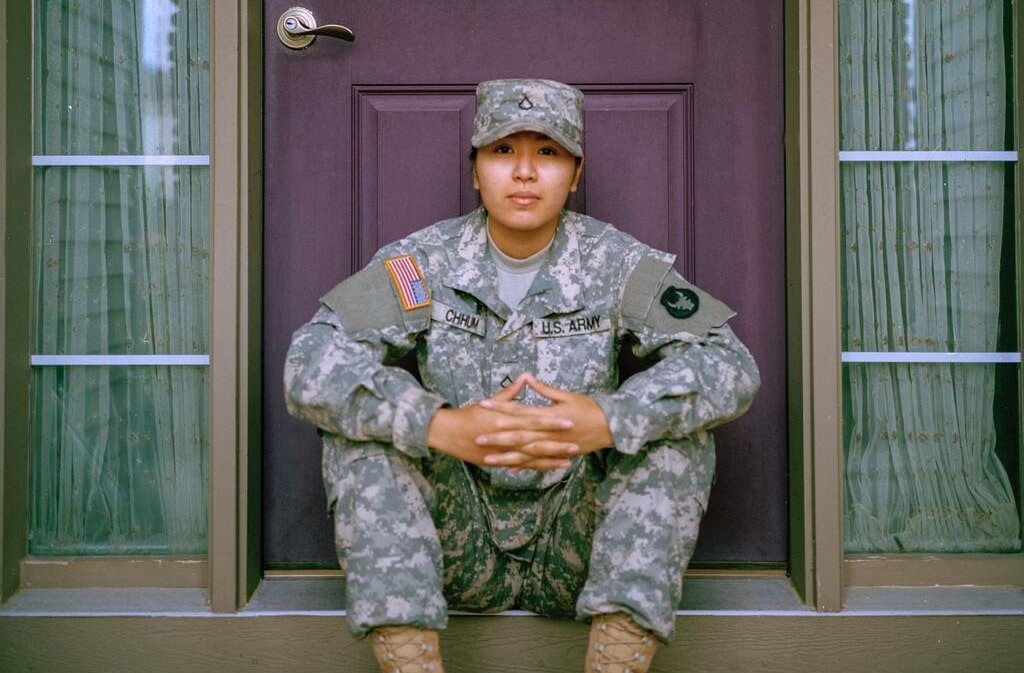Looking for Expert-Level VA Claim Answers?📱Call Us Now! 737-295-2226
For almost anyone who was alive at the time the Twin Towers fell on September 11, 2001, it’s probably hard to believe that two full decades have passed since that shocking and devastating day in our history.
But for veterans who were on active duty at the time—or inspired to enlist or re-enlist in the next year (as over 250,000 did)—the memory may be all too fresh. What’s more, most still experience the impact of that service in their lives every day.
In addition to the first responders and courageous civilians who headed into the rubble for rescue efforts, many veterans who felt called to action on or after that historic day have paid a hefty price for their service.
Today we want to especially honor them—and look at how we can serve them in turn.

You DESERVE a HIGHER VA rating.
Take advantage of a VA Claim Discovery Call with an experienced Team Member. Learn what you’ve been missing so you can FINALLY get the disability rating and compensation you’ve earned for your service.
Unique Challenges of 9/11 Veterans
Virtually all veterans of any era bring home scars and disabilities. As it turns out, post-9/11 veterans share some unique characteristics that deserve special consideration.
- A Pew study concluded that soldiers who went to war after Sept. 1, 2001, are “more likely to bear the scars of battle,” both physical and mental.
- About half of post-9/11 veterans (49%) have had combat experience, compared with 24% of veterans who served only before 9/11, according to the same Pew survey. (This is likely to mean more disabilities, both physical and mental.)
- Roughly half of those surveyed said they had “emotionally traumatic or distressing experiences” related to their military service, and about a third have sought professional help to deal with those experiences.
- Those who served after 9/11 now make up about one-fifth of America’s more than 20 million veterans. About 75% of them deployed at least once, compared to 58% of pre-9/11 veterans, and they were twice as likely to have served in a combat zone.
- Post-9/11 veterans are more likely to say they struggled with the lack of structure in civilian life, and felt disconnected from family or friends. Half of post-9/11 veterans say it was “somewhat or very difficult” for them to readjust to civilian life after military service—compared to about 20% of pre-9/11 veterans.
- Nearly one-third of post-9/11 veterans said they had trouble paying bills after leaving the service.
Women Veterans and 9/11
- The post-9/11 military is more diverse (i.e., more women and minorities) compared with other military service eras. More than 30% of post-9/11 veterans are women, and this percentage has more than doubled since the Vietnam service era (NCVAS, 2015b).
- Chronic multisymptom illness (CMI), which includes medically unexplained symptoms that lead to a loss of normal function (e.g., chronic fatigue syndrome, fibromyalgia, and irritable bowel syndrome [IBS]), is twice as prevalent among female Iraq and Afghanistan veterans than the average female veteran (Mohanty et al., 2015).
- Compared with male veterans, female veterans are more likely to report sexual harassment, depression, more PTSD comorbidities, and non-PTSD anxiety (Frayne et al., 2011; NCVAS, 2015a; Vogt et al., 2011).

Post 9/11 vets also have a distinct disability profile:
- The Wounded Warrior Project survey, which included post-9/11 veterans and service members who had incurred a service-related injury or illness, showed the most common health problems included post-traumatic stress disorder (PTSD); sleep disorders; back, neck or shoulder problems; or depression (Franklin et al., 2015).
- A “signature” illness of post-9/11 veterans is polytrauma, which is an overlap of three conditions: pain, PTSD, and PPCS. In a study of 340 post-9/11 veterans who visited a VHA Polytrauma Network Site, all three of these health conditions were present simultaneously in 42% of participants (Lew et al., 2009). There can be a negative synergistic effect in polytrauma (i.e., each health condition worsened in the presence of the other health conditions), in which pain can elicit PTSD symptoms and PTSD symptoms can exacerbate pain (Lew et al., 2009).
- The most frequent physical/pain condition reported for men and women with PTSD was lumbosacral spine disorders (Frayne et al., 2011).
Statistics like these affirm how vital it is to honor the veterans who gave so much during such a trying time in our nation’s history. Here are some ways we can make sure that these veterans—along with all veterans—receive the benefits, compensation, support and care they need and deserve.
20+ Resources to Support Veterans on the 20th Anniversary of 9/11

- Almost nothing honors—and changes—a veteran’s life more than getting the highest possible VA rating and the full compensation they deserve.
At VA Claims Insider, this is our number one mission, and we help veterans do this through many avenues, providing education and resources that veterans can use to find benefits and win claims:- Blog featuring hundreds of educational articles, frequently updated with the latest information veterans need about their claims, ratings and benefits.
- Youtube channel with hundreds of videos on crucial VA claim topics, including all our Facebook Lives
- Facebook lives every Wednesday at 1 p.m. Central, sharing the latest intel on what’s working for winning VA claims, with Q&A. Join our Facebook Group so you get notified of all Lives!
- Dozens of eBooks, such as the popular Top 25 tips for 100% Disabled Veterans
- #1 Amazon bestseller You Deserve It: The Definitive Guide to Getting the Veteran Benefits You’ve Earned. VACI Claim Insider founder and author Brian Reese explains that he wrote this book to be “the book I wished someone had written for me…a year before I took off my uniform, if only someone had dropped this on my desk and said ‘hey man, here’s your playbook.’” It details step-by-step actions for veterans to get the benefits they deserve for their service: federal, state, nonprofit and for-profit resources for veterans and their families, from health to education to real estate and more. The book is available for purchase, but you can also obtain it for free here.
- Free 30-minute Discovery Call with coaches to help veterans learn how their claims can be improved, and map a game plan for how they can fill any gaps causing denials or low ratings.
- Premium services that include expert one-on-one coaching through the VA disability claim process, free to start with no fee unless and until the veteran successfully increases disability rating. While some veterans can use educational resources to figure it out on their own, many want to fast-track the process with the support of a coach and a community. ELITE members also get connections to medical evidence through a network of independent medical professionals who know how to speak the VA’s language, discounts on mental health evaluations and more. (Click here to apply.)
- Provide supportive strategies for service-connecting common post-9/11 conditions. Given the prevalence of these conditions in post-9/11 veterans, one of the best ways to help veterans is with strategies for getting VA disability ratings for PTSD and depression, along with secondary service connections for sleep apnea and tinnitus.
Here are our top resources related to winning claims for those conditions:- PTSD and Depression
Nearly every veteran we speak to is suffering from mental health symptoms—whether they realize it or not.
There are 31 ratable mental health conditions under the law. The five most common are: PTSD, Adjustment Disorder, Depression, Anxiety, and Somatic Symptom Disorder.
Mental health conditions are usually “high-value” claims, meaning they have a greater likelihood of getting rated at 30% or higher on their own. In addition, mental health conditions are usually easy VA disability claims to get approved.
44.2% of veterans with a service connected mental health condition are rated at 70% or higher; the average VA rating for mental health is 70%. According to the most recent VBA report to Congress, 92.1% of disabled veterans rated for a mental health condition are rated at 30% or higher.
Many service-connected physical conditions can cause or aggravate mental health conditions, and vice versa. Veterans already rated for one condition may consider filing a claim for a mental health condition, if a nexus can be proven between the condition and a mental health disorder.
Post-Traumatic Stress Disorder is an easy claim to get approved if you have a medical diagnosis of PTSD in a medical record and have a valid PTSD stressor event that can be verified.
Depression is common among veterans, yet VA claims for depression are complex. You must establish that your depression directly stems from service. The ideal way to prove service connection for depression would be by having evidence in your active duty service records, but not many veterans have that evidence in their service records. Due to the culture of the military, many active-duty personnel hide their depression and other mental health issues from their peers and leaders.
When service records don’t document depression, personal statements from the veteran and buddy letters from family members or others close to the veteran can be instrumental. A veteran also needs to show that he or she has a current diagnosis of depression. - SLEEP DISORDERS
Many veterans suffer from sleep conditions due to military service. This includes sleep apnea—a sleep disorder in which breathing repeatedly stops and starts during sleep (apneic episodes). Veterans are nearly four times as likely to have or develop sleep apnea compared to those who didn’t serve in the military. Yet sleep apnea remains one of the more difficult conditions to get benefits approved for by the VA.
The best way to ensure your claim reaches the 50% VA rating for sleep apnea threshold is to gather as much evidence as possible before filing.
Resources to check out:
High Value Tips for a VA Rating for Sleep Apnea
How to File a Claim for Sleep Apnea
Sleep Apnea Secondary Conditions
Getting a VA Rating for Sleep Apnea - TINNITUS
Tinnitus is extremely common among veterans. According to the VA, tinnitus is the #1 most-claimed VA disability. Two million veterans have a service-connected tinnitus rating of 10%. What many veterans don’t know is how this claim can open the door to a higher rating via secondary conditions.
While tinnitus itself is only rated at 10%, making it a low-value VA claim, there are five VA disability claims rated at 30% or above that can be medically linked to tinnitus. This can help get you an overall higher combined disability rating.
If you’re thinking about filing your tinnitus claim as a secondary disability, the following conditions can cause or make tinnitus worse: head and neck conditions, Meniere’s disease, depression and anxiety, PTSD, TBI, hearing loss, temporomandibular joint disorder (TMD) and high blood pressure, among others. You can also file for a host of disability conditions that are secondary to tinnitus. You’ll want to get a nexus letter to help prove service connection. - PAIN SYNDROMES
While musculoskeletal conditions can be rated from 0% to 100%, they’re commonly rated at 0%, 10%, or 20% (they get rated 20% or less 91.7% of the time). That makes these conditions low-value claims. But they can also be filed as secondary disability claims.
Somatic Symptom Disorder was named as one of the most common post-9/11 syndromes. It’s a relatively new designation only recently recognized by the VA, so it’s important to understand the condition and what it takes to service-connect it.. Check out more resources on SSD here and here.
- PTSD and Depression
New Tips to Win Your VA Claim for Tinnitus (2022)
- Teach veterans how to get the right medical evidence to support their claims. Post- 9/11 vets should be compensated for the particular and often severe disabilities that compromise their quality of life. Some conditions are easier to service-connect than others, but all require a clear nexus and medical evidence to support that connection. To that end, one of the most supportive things we can do for veterans is show them how to get the right medical evidence. Lack of medical evidence is the number one reason most veterans don’t have the rating and compensation they deserve. You need the right diagnosis, a medical nexus letter or credible independent medical opinion (IMO), and other key evidence.
If a veteran wants to educate him- or herself on how to get the proper medical evidence and opinions, we offer lots of guidance. (Check out this video on medical evidence.)
- Support military spouses and family. Post-9/11 life isn’t a piece of cake for spouses of veterans either. The stigmas and myths surrounding mental health conditions can keep many veterans from seeking help. We created this guide for spouses and significant others of service members transitioning into civilian life. Learn the warning signs of post-military depression, and how to talk to veterans in your life about getting help when they need it.
- Reintegration into civilian life and finding civilian employment can be incredibly supportive to veterans—especially, as statistics show, for post 9/11 veterans.
Surveys show that post-9/11 veterans have particularly struggled with reintegration, but veterans of all service eras wonder if they have anything to offer after they return home. Yet veterans are known and valued for their adaptability, discipline, technical skills, leadership and management experience, and their ability to build and lead high-performing teams. They’re mission-oriented team players, and sought after by many companies.
For example, Starbucks has committed to hiring 5,000 veterans and military spouses each year, according to CEO Kevin Johnson who says, “They make us a better company.”
Service-disabled veteran, retired Air Force captain and VA Claims Insider founder Brian Reese—who had post-9/11 service—remembers “I had no idea what I was going to do. I knew I was capable, smart, and trained—but I also had a lot of anxiety about taking off the uniform. I was nervous, frustrated, depressed, and worried about what next.”
Brian created his passion project HireVeterans.com to connect transitioning veterans with companies who want what they have to offer. It’s free for active duty and veterans.

- Burn pit exposure presumptive claims for certain respiratory conditions should make it easier for post-9/11 veterans, thanks to a new rule announced in August 2021. Burn pit exposures were a special hazard of service in Iraq and Afghanistan.
Burn pits are either controlled or uncontrolled open-air trash-burning areas used by the U.S. military and military contractors. They were especially predominant in Iraq and Afghanistan military sites, and exposed service members to a cocktail of toxic substances and carcinogens as vast assortments of waste products were burned together (including metal, rubber, chemicals, paint, medical waste, munitions, petroleum products, human waste, plastics, and more). Breathing these airborne pollutants led to long-term medical conditions for many veterans.
A presumptive condition is one that the VA “presumes” to be service-connected, even if there’s no causation (nexus) in the individual’s case—as long as you were deployed to an eligible location during a specific period, and you developed a qualifying disability condition as a result of your military service. (You still have to file the claim.)
In this case, if you served in Southwest Asia or certain other regions (including Iraq or Afghanistan after 9/11) and developed sinusitis, rhinitis, rhinosinusitis or asthma within 10 years of your separation from active duty service, these respiratory conditions will now be presumed service-connected and eligible for benefits in a claim. Learn more in this post Burn Pit Exposure Presumptive Conditions Explained: The Insider’s Guide (2022).
- Encourage veterans to be vulnerable, and create a safe space to do so.
Brian talks candidly about his own experience with alcohol and drugs—abusing them for years to escape physical and mental pain. “It took me years to fully be able to admit that and be honest and vulnerable, to realize that if I don’t get sober, I’m no good to anyone else—my family, veterans or teammates.”
One of Brian’s most consistent messages is “it’s okay to not be okay.” Transparent in frequent media interviews about his own struggles with depression, anxiety, PTSD and alcohol, he expresses his gratitude for the support of friends, family, co-workers and yes, the VA—once he learned how to navigate the claims process in a way that served him and others.
“Never, ever hesitate to ask for help,” he urges veterans. “You are not alone in this.” It’s hard enough to navigate post-service life and the VA claims system. One of the reasons he created VA Claims Insider to include a community mastermind (alongside individual coaching) is because of the sense of connection and empathy that only other veterans can provide. The veteran coaches who support VACI clients through the claims process have typically been through the process themselves, fighting for their own highest ratings for their disabilities.
A service-disabled retired Air Force captain who served in Afghanistan— including a combat tour in 2011 supporting Operation ENDURING FREEDOM—he is an outspoken advocate for all veterans to understand that they do deserve help…and to be vulnerable enough to ask for and accept it.
He urges veterans to understand that the stories they tell themselves about “others have it worse” don’t serve anyone—and aren’t true. His motto “You served, you deserve” isn’t just a maxim, but a heartfelt plea for veterans to allow themselves to receive and claim what is truly theirs—legally, morally and ethically.
Miscellaneous Resources and Programs for 9/11 Veterans
- The Post-9/11 GI Bill (Chapter 33) helps post-9/11 veterans pay for school or job training. The program pays all in-state tuition and fee charges at public schools and tuition and fees (not to exceed a national cap at private schools). If you’ve served on active duty after September 10, 2001, you may qualify. Find out if you can get this education benefit.
- The Veterans Inc. Post-9/11 program provides peer support and specialized career services for Post-9/11 veterans. Get more info here.
- The 9/11 Memorial & Museum recognizes the courage, selflessness, and sacrifice of the people who answered the call to serve or continued their military careers after the attacks. Learn more about the 9/11 Memorial and Museum.
- Wounded Warrior Project® (WWP) honors and empowers the brave veterans who were injured while protecting our nation after 9/11. Learn more about the Wounded Warrior Project.
MAKE SURE YOU GET ALL THE BENEFITS YOU DESERVE
Regardless of what state you live in, it’s important that you pursue the monthly compensation payments due to you for disabilities connected to your military service.
Most veterans are underrated for their disabilities and therefore not getting the compensation they deserve. At VA Claims Insider, we help veterans understand and take control of the claims process so they can get the rating and compensation they’re owed by law.
Our process takes the guesswork out of filing a VA disability claim and supports you every step of the way in building a fully-developed claim (FDC)—so you can increase your rating in less time!
If you’ve filed your VA disability claim and have been denied or have received a low rating – or you’re not sure how to get started – reach out to us for a FREE VA Claim Discovery Call, so you can FINALLY get the disability rating and compensation you deserve. We’ve supported more than 15,000 veterans to win their claims and increase their ratings. NOW IT’S YOUR TURN.
About the Author

Brian Reese
Brian Reese is a world-renowned VA disability benefits expert and the #1 bestselling author of VA Claim Secrets and You Deserve It. Motivated by his own frustration with the VA claim process, Brian founded VA Claims Insider to help disabled veterans secure their VA disability compensation faster, regardless of their past struggles with the VA. Since 2013, he has positively impacted the lives of over 10 million military, veterans, and their families.
A former active-duty Air Force officer, Brian has extensive experience leading diverse teams in challenging international environments, including a combat tour in Afghanistan in 2011 supporting Operation ENDURING FREEDOM.
Brian is a Distinguished Graduate of Management from the United States Air Force Academy and earned his MBA from Oklahoma State University’s Spears School of Business, where he was a National Honor Scholar, ranking in the top 1% of his class.
WHAT VETERANS SAY…
“I submitted my claim on May 13, 2021 and received a decision on June 4th, 2021—just 3 weeks later! My disability rating went from 50% to 80%.” – J.M. Brooks, MSGT USMC (Ret.)
“It’s the fastest claim I have ever done. This benefit for me is life-changing and I am glad to have found this company to assist me.” – Josephus West III
“The help that you gave me was outstanding. My rating went from 70% to 90% in the fastest time ever. Everyone was nothing but help. I will tell all my friends about VA Claims Insider.: – Ken Ynclan
“VA Claims Insider is a great organization. I’ve gone from 30% to 60% in just 4 months with the tools and education I have gained since becoming a member. It’s like joining a family.” – Edrina Braden Greene
“I was at 90% disability for years! I joined VA Claims Insider in February and was at 100% in June.” – Shawn Williams
“I received an increase nearly threefold in the 30 days they projected. I was actually expecting 3-4 months. I want to thank my coach for walking me through the entire process.” – Farris Hisle
“Everyone involved was very helpful. Video tools were extremely helpful. My coach guided me from 0 to 100% success in just IN JUST 3 MONTHS!!!! ABSOLUTELY AMAZING!!! – Erwin Morris
“Brian, This is John Still coming straight atcha from Fort Hood Texas, one of your VA Insider fans, just wanted to extend my gratitude for all the free services and information you offer. I was granted 100 % Permanent and Total today and a huge part of my “HIGH VALUE” claims was due to your free content, but I’m not a total moocher, I bought a hard copy of your book for myself and one for my brother, also shared your E-BOOK which in turn resulted in another hard copy sold…Thanks again and I appreciate everything. “
– V/R John Still




